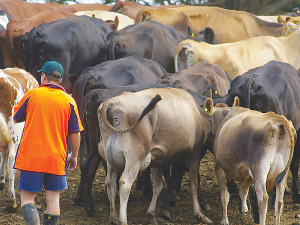OPINION: The Fair Pay Agreements (FPAs) bill proposed by Government is causing alarm in the farming sector.
That's why farmer organisations are joining forces with Business New Zealand and business groups to launch a national campaign against it.
Federated Farmers is calling FPAs "an unnecessary, inflexible, one-size-fits-all legislation".
Dairy farmers, in particular, feel there's nothing fair about FPAs.
They see it as a straitjacket that lock employers and employees into a national set of pay and conditions rules. FPAs might suit a minority but remove all ability of businesses and staff to agree on terms that suit their own needs and local conditions.
The Government says FPAs are part of its wider work programme focused on lifting the wages of those on low to medium incomes.
The threshold for initiating an FPA is 10% of workers of 1000 workers in the identified group - whichever is less. Once an FPA is agreed, all employers and employees across an entire industry or occupation are locked into the conditions of that FPA.
Feds rightly point out that there's little or no collective bargaining in the agriculture sector, yet workers' pay is well above the minimum wage, above the living wage and, in most areas, above the median wage.
The 2022 Federated Farmers-Rabobank Farm Remuneration report shows 13.5% average growth in pay packages for farm workers over the last two years. Average reported hours worked fall below the International Labour Organisation recommended maximum standard working time of 48 hours per week (for full-timers - dairy 47.2 hours, sheep/beef 44.8 and arable 46.2).
Feds claims this is off the back of farm and business owners' negotiating with their staff about what will work to retain those workers in a competitive marketplace and keep the business profitable.
Farmers admit their industry isn't perfect but it's working hard to get it right with a slew of programmes.
They are unhappy with FPAs claiming these will reduce flexibility, raise costs and destroy productivity.
All food sector stakeholders are being urged to back BusinessNZ in opposing the proposed regulation.
Collective bargaining is currently almost unknown in the farm sector - except in ancillary occupations like dairy process workers and drivers. Not being bogged down in collective bargaining has helped contribute to NZ farming's great economic success. That could soon be in jeopardy.


















